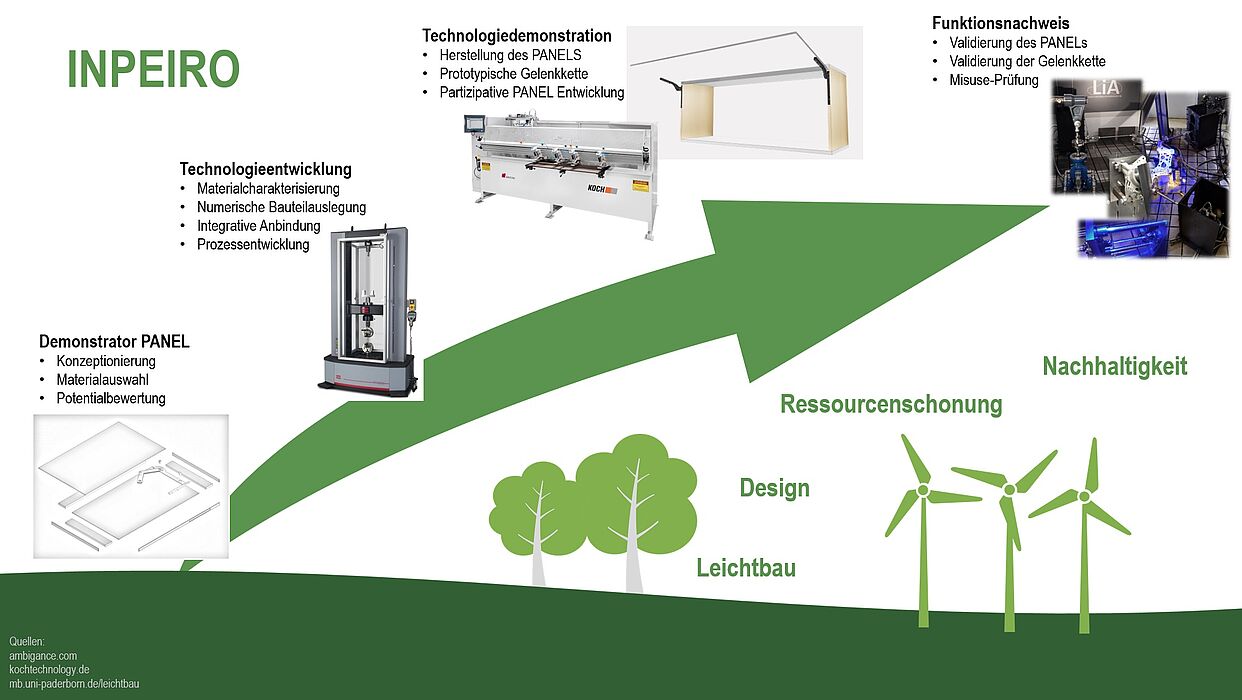A year ago, the joint project "InPeiro" was launched as part of the Technology Transfer Programme Lightweight Construction (TTP LB) with funding from the Federal Ministry for Economic Affairs and Climate Action (BMWK). During the 36-month project period, a total project volume of €1.46 million and a funding amount of €800,000 will be available for the development of a novel component for the furniture industry.
Society's increasing focus on resource savings and sustainability, as well as a sensitive energy policy situation, require a motivated, proactive approach in all areas of industrial manufacturing. The furniture industry has a special responsibility because of its large access to wood, the most important renewable resource. On the one hand, saving wood saves CO2, and on the other hand, this CO2 is bound by reducing deforestation during the growth of the tree. The aim of the consortium is to conserve this important raw material by applying the design principles of lightweight construction and to develop the necessary methods to reduce the resources required.
The project will combine design aspects with manufacturing technology and numerical methods to create novel furniture designs, providing a holistic view of the components. It will also include a validated manufacturing process and full functional testing. Achieving these ambitious goals will be made possible by combining the expertise of the University of Paderborn with the Chair of Automotive Lightweight Design (LiA), ambigence GmbH & Co. KG, Gerhard Koch Maschinenfabrik GmbH & Co. KG, hunger Möbelproduktions GmbH and the Ostwestfalen-Lippe University of Applied Sciences in the Laboratory for Industrial Furniture Construction, Design and Development.
On the one hand, LiA can contribute its extensive expertise in automotive lightweight design and in process technology for functionally integrated structures to the joint project. On the other hand, it benefits from the methods and material concepts established there, which can be used in future vehicle concepts. The potential of this spill-over effect from two different industrial sectors holds enormous potential for increasing sustainability and conserving resources in equal measure. The overall societal benefit through acceptance and integration of different sectors will influence industrial development more than ever in the future. LiA, together with its project partners, is already playing a decisive role in this respect.

